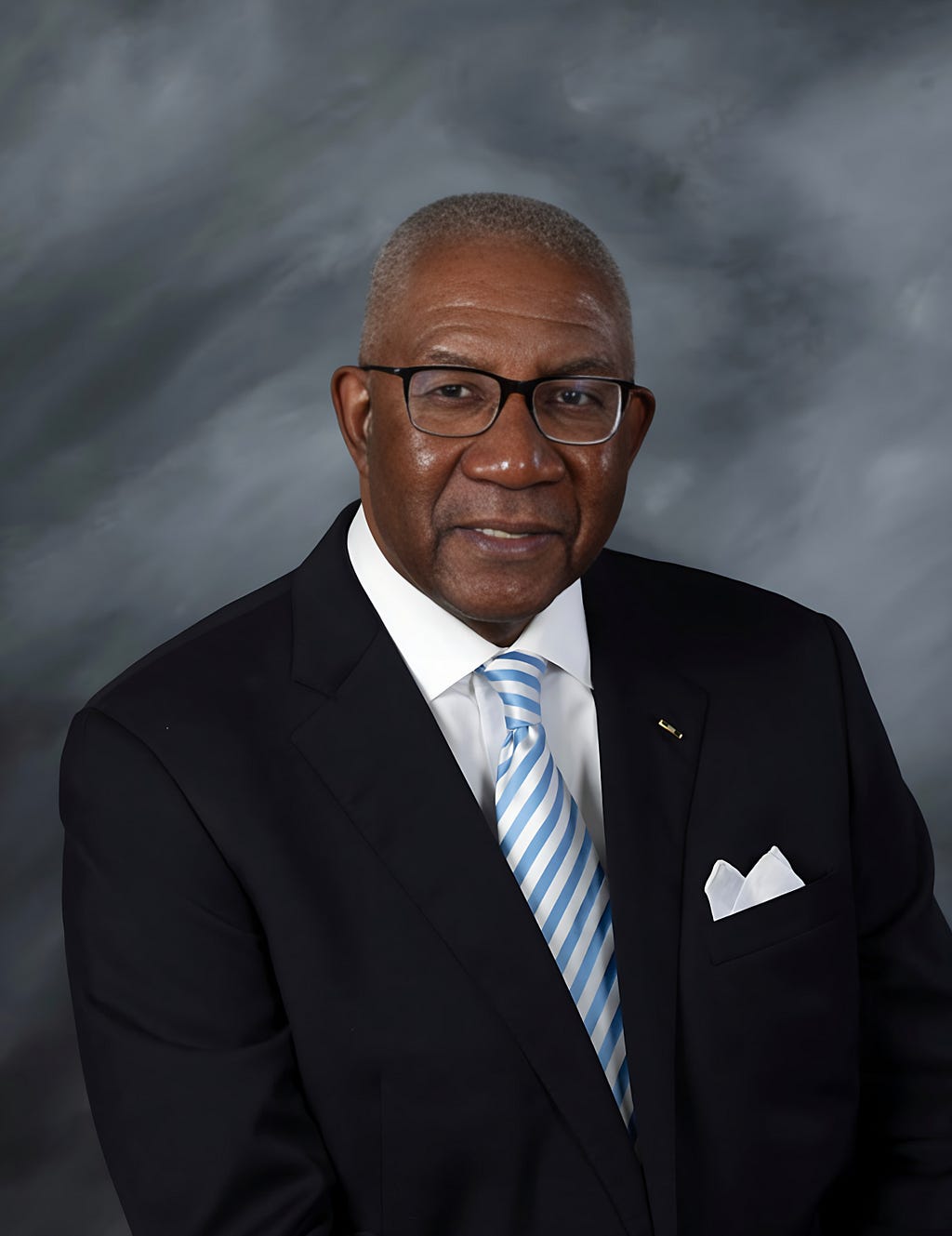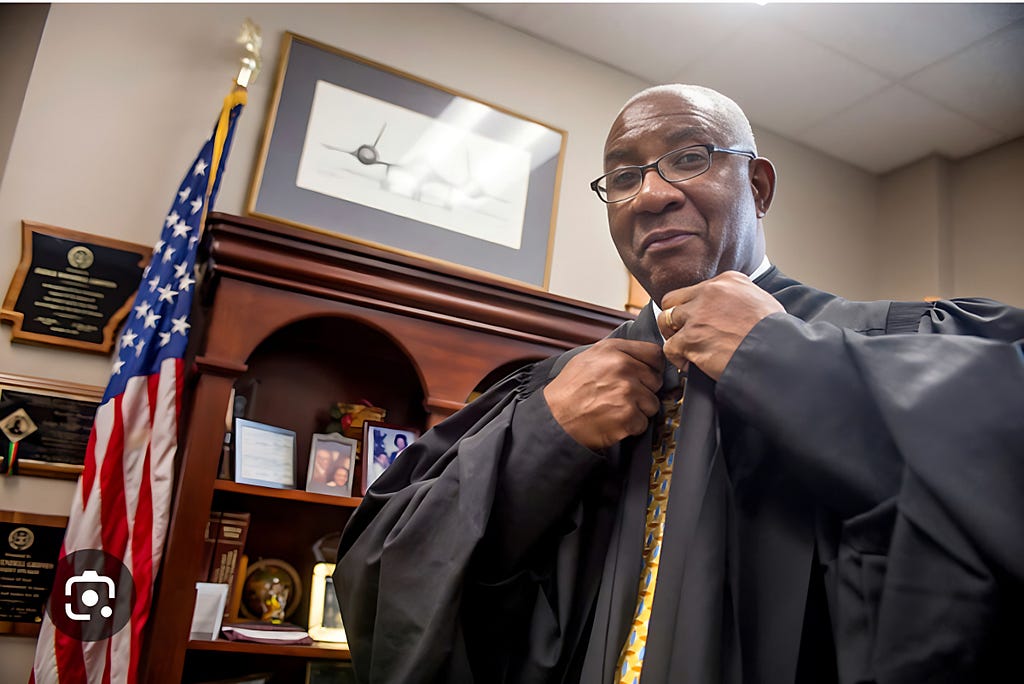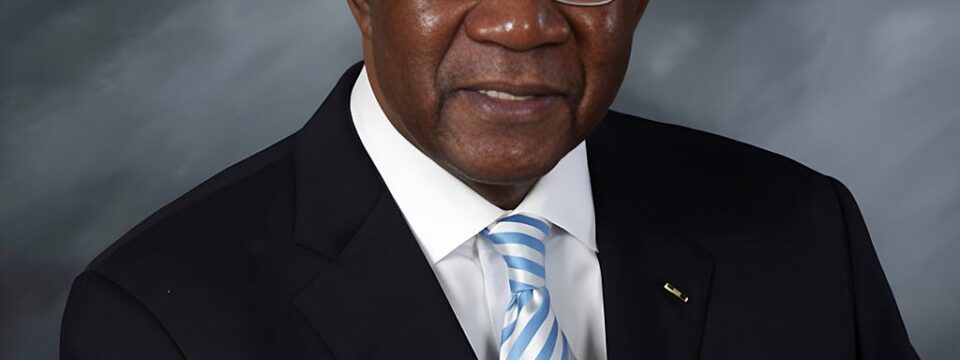
Hope fiercely and love boldly. Fierce hope is more than sentimentality. It is a moral force that empowers courage and produces change. Bold love is more than romantic. It is prophetic.
As part of my series about “authors who are making an important social impact”, I had the pleasure of interviewing Wendell Griffen.
Wendell Griffen, author of two books, three Internet blogs, and numerous opinion articles on social justice, is a public theologian, retired state court trial and appellate judge, former law professor, pastor in the religion of Jesus, consultant on cultural competency and inclusion (DEI), public policy commentator, and social justice activist. He holds degrees in political science (B.A. 1973) and law (J.D. 1979) from the University of Arkansas, is an honorably discharged U.S. Army veteran, and is a 1975 graduate of the former Defense Race Relations Institute (DRRI), now known as the Defense Equal Opportunity Management Institute (DEOMI). Griffen currently serves as Pastor of New Millennium Church in Little Rock, Arkansas, CEO of Griffen Strategic Consulting, PLLC, and Co-Chair of the Samuel DeWitt Proctor Conference.
Thank you so much for joining us in this interview series! Before we dive into the main focus of our interview, our readers would love to “get to know you” a bit better. Can you tell us a bit about your childhood backstory?
I was in rural southwest Arkansas in 1952 more than a decade before Jim Crow racial segregation was outlawed by the Civil Rights Act of 1964. I attended racially segregated public schools (Rosenwald Elementary School near Delight and Simmons High School in Okolona, Arkansas ) until the tenth grade (1965) before eventually graduating from Delight High School in May 1968, a few weeks after Martin Luther King Jr. was assassinated in April and before Robert F. Kennedy was assassinated in June 1968.
I attended college at the University of Arkansas between 1968 and 1973, and entered the U.S. Army as a commissioned officer when I graduated from college with a degree in political science.
When you were younger, was there a book that you read that inspired you to take action or changed your life? Can you share a story about that?
My grandmother was a domestic worker for a pharmacist in a neighboring county. She gave me the Readers Digest Condensed books that the family she served discarded. Those books opened my mind to life beyond rural southwest Arkansas and helped me envision myself living that life.
It has been said that our mistakes can be our greatest teachers. Can you share a story about the funniest mistake you made when you were first starting? Can you tell us what lesson you learned from that?
I was fifteen years old when I graduated from high school and turned sixteen during my first month in college. Then flunked out of college after three semesters and went home to do farm work from January until August 1970 (when I was readmitted on academic probation after completing 12 hours of correspondence courses) a month before I turned eighteen and became eligible for being drafted into the military. I learned a lot about humility, introspection, self-discipline, and discernment while doing farm work between the time I flunked out of college and the time I was readmitted.
Can you describe how you aim to make a significant social impact with your book?
I hope my book — and all my writing and public appearances for that matter — will help people develop greater appreciation for discernment, the value of asking tough questions, and the discipline of wrestling with unsettling contradictions.
Can you share with us the most interesting story that you shared in your book?
The most interesting story in my book involves the reaction to the April 4, 1967, speech by Martin Luther King Jr. that called for US withdrawal from the military involvement in Vietnam. A close second involves the more than four- decade struggle for liberation from incarceration by Mumia Abu-Jamal, a Black activist and journalist.
What was the “aha moment” or series of events that made you decide to bring your message to the greater world? Can you share a story about that?
My latest book was prompted by events surrounding the 2016 election of Donald Trump, the Covid-19 global pandemic, and the 2020 protests against abusive and homicidal policing in the aftermath of the deaths of Breonna Taylor, Ahmaud Arberry, and George Floyd. As Allan Boesak and I conversed about those events over Skype, he suggested that we should collaborate on a book. Then Allan challenged me to discard my misgivings about being a public theologian and write the book with him. Allan coached me past my misgivings by reminding me that I had been doing public theology for years before the 2020 pandemic, and that the competence and inspiration that prompted that work came from the same source that would help produce our book.
Without sharing specific names, can you tell us a story about a particular individual who was impacted or helped by your cause?
I have been approached on several occasions by young people who told me that my public activism and advocacy made them reshape their views concerning the intersection of faith and social justice.
Are there three things the community/society/politicians can do to help you address the root of the problem you are trying to solve?
First, know the facts about the problems facing our world. Second, dare to question, remembering that Mark Twain quipped that “It ain’t what you don’t know that gets you in trouble. It’s what you know for sure that ain’t so.” Finally, follow the best advice my father gave me. Trust God and think for yourself. That means one should not be so quick to accept “conventional wisdom” to be anything other than conventional, not wise.
How do you define “Leadership”? Can you explain what you mean or give an example?
Leadership involves the exercise of knowledge and skill required to inspire others to attempt to achieve desired outcomes. It requires moral, intellectual, emotional, cultural, social, and political competence (knowledge and skill), coupled with the will to make and inspire sacrifice from oneself and others.

What are your “5 things I wish someone told me when I first started” and why?
- Study. Knowledge is a necessary element in holding and exercising power. Learn to appreciate the value of formal and informal sources of knowledge.
- Ask yourself “why” before saying “yes”, “no,” “I can,” or “I can’t.” Reasons should be evaluated before expecting results.
- Respect the ability to think for yourself before accepting that what others think is true, worthwhile, or better.
- Focus on relationships, not privilege. Unjust relationships are not worth whatever privileges one may gain from them.
- Hope fiercely and love boldly. Fierce hope is more than sentimentality. It is a moral force that empowers courage and produces change. Bold love is more than romantic. It is prophetic.
Can you please give us your favorite “Life Lesson Quote”? Can you share how that was relevant to you in your life?
When I was a third-year law student I heard George Haley, brother of Roots author Alex Haley, quote a statement by Dr. Benjamin E. Mays, who was president of Morehouse College when George Haley was a student. “Train your mind to think, for the man [person] who out-thinks you rules you.” I realized then that my elders had instilled that attribute in me from childhood. From that quote I developed two other messages of my own.
“If you shoot at nothing you will hit it.”
“I wear a t shirt, but it doesn’t read “Boo-Boo the Fool.”
Is there a person in the world, or in the US with whom you would like to have a private breakfast or lunch with, and why? He or she might just see this, especially if we tag them. 🙂
I would love to spend time and chat with Rev. Dr. Jeremiah A. Wright Jr.
How can our readers further follow your work online?
My books can be purchased online.
They are:
Parables, Politics, and Prophetic Faith (Nurturing Faith, 2023)
The Fierce Urgency of Prophetic Hope (Judson Press, 2017)
Here are the links for my Internet blogs:
www.fierceprophetichope.blogspot.com
www.wendellgriffen.blogspot.com
I political and social justice commentary frequently appears on the following online platforms
Good Faith Media (www.goodfaithmedia.org)
Baptist News Global (www.baptistnews.com)
Christian Ethics Today (www.christianethicstoday.com)
CounterPunch (www.counterpunch.org)
Talk Black Arkansas (www.talkblackarkansas.com)
Today’s Communique (www.todayscommunique.com)
This was very meaningful, thank you so much. We wish you continued success on your great work!
Social Impact Authors: How & Why Author Wendell Griffen Is Helping To Change Our World was originally published in Authority Magazine on Medium, where people are continuing the conversation by highlighting and responding to this story.
